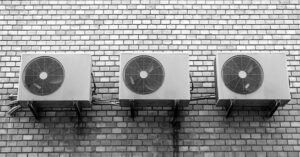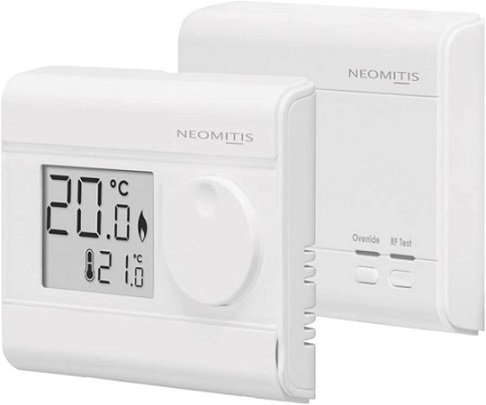Troubleshooting When An Air Conditioning AC Unit Is Not Working
Air conditioning is essential in any building or home. Residentially in the USA it is widespread, and has been for many years. In the UK, the use and need for air conditioning in homes is growing at a very high rate. Some of this growth is down to how hot and humid the summers in the UK have started to become.

Air conditioning, known as “AC” for short regulates the temperature of a room and keeps people comfortable. It not only regulates the temperature, but also removes moisture from the air. However, when air conditioning stops working, it can be annoying and uncomfortable. A building’s air conditioning system can malfunction in a variety of ways and it’s important to know how to troubleshoot this problem.
See below for some of the common problems you may encounter with your air conditioning system and how you can check if your issues are caused by dirt or debris. I also share a few suggestions that can help you effectively troubleshoot your AC system.
Common Culprits
The most common reasons for having problems with your AC system are unit failure, dirt or debris in the AC unit and low refrigerant levels. To conclude if your problems are related to failure, start by checking the AC’s refrigerant levels. All of your AC’s components use some amount of refrigerant to run, and depending on how much was used, this will affect how cold your system gets.
Refrigerant Levels
You can check the refrigerant levels by opening the AC unit and looking at its liquid lines on the left-hand side of the unit. You can quickly see if there how much refrigerant is in the unit by looking at its level. If you have too little refrigerant, your AC will stop working because it cannot remove heat from your living space as it should. To increase the chances of having an effective repair session, take accurate notes about what you find during inspection as well as what you do next.
Check For Dirt Build Up
One reason for not having enough refrigerant could be dirt in one of the components that uses refrigerant — especially if you have noticed this issue before with other units at home or work. To check for dirt, remove all interior and exterior parts from the unit before inspecting its insides using a flashlight and magnifying lens if necessary.
Inspect all internal parts such as pipes, hoses, fittings and expansion valves thoroughly looking for any evidence of dirt build-up such as rust stains or excessive grease deposits. Additionally, clean all internal parts to ensure optimal functionality without causing additional issues due to dirt in these areas either inside or outside the unit itself. After inspecting all internal parts thoroughly for signs of dirt buildup, reinstall any interior or exterior parts that need it before recharging with more liquid refrigerant if necessary.
Dehumidification
Another possible cause for not having enough air conditioning comes from low levels of dehumidification. Dehumidification allows air conditioners to remove moisture from indoor spaces so occupants don’t get overheated symptoms like those caused by excessive moisture in a buildings’ air.
Hygrometer
To check for this problem, remove all interior and exterior parts from the unit before measuring relative humidity inside buildings using a hygrometer— a device that measures relative humidity based on CO2 pressure —or an electronic device called a dew point hygrometer . If there is too much water indoors , an extended period outside where it’s very humid will result in increased cooling needs due to indoor humidity accumulation.
Maintenance Is Key
Air conditioning systems come with many replaceable parts and potential problems, such as leaks, AC producing warmer air instead of cold, dirty filters and failing or failed fan motors, all of which may require careful monitoring over time so repairs, when needed, don’t create new problems later on; however, regular maintenance of a normally reliable unit can prevent breakdowns almost entirely.
Keep A Look Out
You can help prevent breakdowns by regularly inspecting your air conditioning system components using accurate notes about what you find during inspections as well as what you do next.
Additionally, be sure to maintain proper dehumidification since this will help avoid breakdowns due to excess indoor humidity. Anytime something stops working in a building’s systems, residentially or commercially, understanding how they work first is essential so you can seek out solutions that address potential issues instead of creating new ones.
